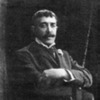Gabrielle Wittkop (1920–2002)
Author of The Necrophiliac
About the Author
Works by Gabrielle Wittkop
Associated Works
Tagged
Common Knowledge
- Canonical name
- Wittkop, Gabrielle
- Birthdate
- 1920-05-27
- Date of death
- 2002-12-22
- Gender
- female
- Nationality
- France
Germany - Birthplace
- Nantes, Loire-Atlantique, Pays de la Loire, France
- Place of death
- Frankfurt am Main, Germany
- Places of residence
- Nantes, Loire-Atlantique, Pays de la Loire, France
Frankfurt am Main, Germany - Occupations
- journalist
- Relationships
- Wittkop, Justus Franz (husband)
Members
Discussions
Gabrielle Wittkop in The Chapel of the Abyss (July 2021)
Reviews
Lists
Short and Sweet (1)
Awards
You May Also Like
Associated Authors
Statistics
- Works
- 23
- Also by
- 1
- Members
- 490
- Popularity
- #50,416
- Rating
- 4.0
- Reviews
- 11
- ISBNs
- 54
- Languages
- 9
- Favorited
- 4














Because of its style and subject matter, Wittkop's story asks to be judged alongside its literary peers, demanding admittance to a literary subculture that combines the transgressive practice of pornography with a serious philosophical investigation into the overlapping themes of life and death. One does not, after all, read works like this for the sake of titillation. Despite its sexually explicit themes, The Necrophiliac is intensely focused on the theme of how death shapes our understanding of life's purpose.
So just who are Wittkop's putative peers? Obviously, there is the Marquis de Sade who, in works like The 120 Days of Sodom and Philosophy in the Bedroom, combined sexual cruelty with a probing examination of the meaning of life in a godless universe. From the nineteenth-century, we might single out Edgar Allan Poe who, while hardly pornographic in the traditional sense, nonetheless demonstrates an intense interest in perversity, as well as Charles Baudelaire, whose poem "The Corpse" (from The Flowers of Evil) seems particularly relevant here. In the twentieth-century, the obvious representative would be Georges Bataille, whose novella Story of the Eye is a masterpiece of intellectual pornography.
The enduring fascination of those earlier works lies in the adventurous way in which they pushed the boundaries not only of taste, but also of thought, in new directions. It is a sensation I didn't get from reading The Necrophiliac which, given its original publication date of 1972, seems like a pale imitation of those earlier writers. Taken on its own, it is a stylish, accomplished piece of fiction, but when placed in the larger context of the genre, it can only be seen as a minor work.… (more)